How was July for you? I love seeing the back of July because it feels that Spring, and warmth, are just around the corner. July has been reasonably quiet on the Literary front, but we did have NAIDOC Week early in the month, and the winners of a couple of awards were announced.
July’s Overview
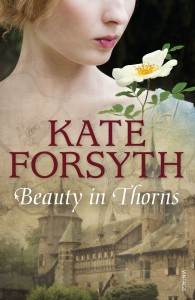 Our Classics and Literary reviewing stats continue to boom. Last year, we had 26 reviews in July, but this year there were 58. That’s an improvement by any measure!! Here are some of the highlights:
Our Classics and Literary reviewing stats continue to boom. Last year, we had 26 reviews in July, but this year there were 58. That’s an improvement by any measure!! Here are some of the highlights:
- Two very recent releases were the most reviewed books this month: Kate Forsyth’s keenly awaited Beauty in thorns (five reviews), and Anna Spargo-Ryan’s The gulf (three reviews)
- Top reviewer this month was someone who’s appeared in this slot a few times this year, GoodReads reviewer calzean, with 5 reviews. Bill Holloway (The Australian Legend) also posted five reviews (although not all were reviewed in July).
- Seven reviews, this NAIDOC Week month, were for books by indigenous authors and/or dealing with indigenous issues.
The Classics
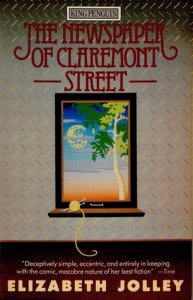 Four classics were posted this month:
Four classics were posted this month:
- Miles Franklin’s Back to Bool Bool and Gentleman of Gyang Gyang, and Elizabeth Jolley’s The newspaper of Claremont Street, by the above-mentioned Bill Holloway,
- Joan Lindsay’s Picnic at Hanging Rock by GoodReads reviewer Suzanne Robinson
Bill was impressed by Jolley’s novella about Weekly, a cleaner who is saving up to have her own place. Bill concludes:
Jolley’s writing is exquisite and her characterisations are brilliant. She writes with great feeling about what it is to be an older woman, but more than that, she writes with insight on what it is to be, in Australia.
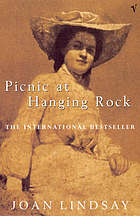 Suzanne Robinson “read” Picnic at Hanging Rock via audiobook, and admits that she’s not a big fan of historical fiction. She was particularly impressed by the quality of the audiobook – the use of pan flute music from the movie, and effectiveness of Jacqueline Mackenzie’s reading. She wasn’t so enamoured of the book, partly because it “lacked finality” though she recognised that was the point of the story.
Suzanne Robinson “read” Picnic at Hanging Rock via audiobook, and admits that she’s not a big fan of historical fiction. She was particularly impressed by the quality of the audiobook – the use of pan flute music from the movie, and effectiveness of Jacqueline Mackenzie’s reading. She wasn’t so enamoured of the book, partly because it “lacked finality” though she recognised that was the point of the story.
Indigenous authors and issues
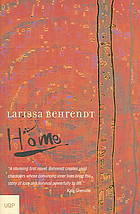 In July, Australia celebrates NAIDOC Week, when we recognise “the history, culture and achievements of Aboriginal and Torres Strait Islander peoples”. Several books reviewed this month were identified as either by an indigenous author or covering indigenous issues, but here I’m going to identify the three by indigenous authors. While it is important for all writers to consider indigenous people, the critical thing is for more Australians to hear more indigenous voices.
In July, Australia celebrates NAIDOC Week, when we recognise “the history, culture and achievements of Aboriginal and Torres Strait Islander peoples”. Several books reviewed this month were identified as either by an indigenous author or covering indigenous issues, but here I’m going to identify the three by indigenous authors. While it is important for all writers to consider indigenous people, the critical thing is for more Australians to hear more indigenous voices.
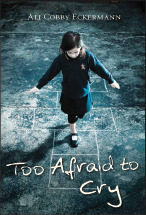 Margaret Broughton read Larissa Behrendt’s Home, while I read two books by Ali Cobby Eckermann, Inside my mother and Too afraid to cry. Home and Inside my mother have been reviewed before for the challenge, so I’ll focus on Too afraid to cry, which is an interesting book to read alongside Maxine Beneba Clarke’s The hate race.
Margaret Broughton read Larissa Behrendt’s Home, while I read two books by Ali Cobby Eckermann, Inside my mother and Too afraid to cry. Home and Inside my mother have been reviewed before for the challenge, so I’ll focus on Too afraid to cry, which is an interesting book to read alongside Maxine Beneba Clarke’s The hate race.
Cobby Eckermann was adopted as a baby by non-indigenous parents. They were good, loving people, but didn’t understand the pain experienced by children from a different culture to their own. The result was that Cobby Eckermann was left to contend with racism and abuse that she, too, did not initially understand. This book tells that story, and how it affected the trajectory of her youth and early womanhood. It’s not pretty. Eventually, though, she connects with her own culture, and things begin to change. It’s a moving read. I wrote that it is
an innovative and evocative memoir, which manages to convey hurt and pain, truthfully, but with a generosity that is humbling.
Awards news
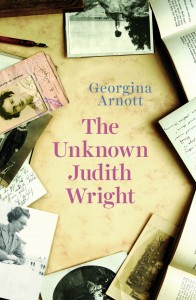 The shortlist for the 2017 National Biography Award was announced at the beginning of the month, with four of the six shortlisted books being by women:
The shortlist for the 2017 National Biography Award was announced at the beginning of the month, with four of the six shortlisted books being by women:
- Georgina Arnott’s The unknown Judith Wright
- Suzanne Falkiner’s Mick: A life of Randolph Stow
- Kim Mahood’s Position Doubtful: mapping landscapes and memories
- PJ Parker’s The long goodbye
In case newer readers here are wondering, I’m including these awards here because the best biographies tend to be “literary” (by our loose definition here). Anyhow, only two of these have been reviewed for the challenge, Arnott and Mahood’s books. Even though the winner was announced at the end of July, Tom DC Roberts’ Before Rupert: Keith Murdoch and the birth of a dynasty, it would be lovely to see reviews of Falkiner and Parker’s books. Anyone interested?
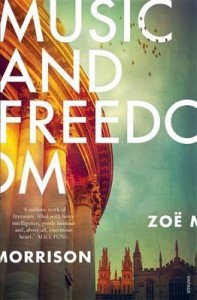 Also announced in July was the winner of the ALS Gold Medal, an annual award for a fiction or non-fiction work “of outstanding literary merit”. The winner was a debut novel, Music and freedom by Zoe Morrison. It has been reviewed four times for the challenge to date, including one this month by Cass Moriarty. She liked it, describing in her review how Morrison incorporates both freedom and music into the narrative. She concludes:
Also announced in July was the winner of the ALS Gold Medal, an annual award for a fiction or non-fiction work “of outstanding literary merit”. The winner was a debut novel, Music and freedom by Zoe Morrison. It has been reviewed four times for the challenge to date, including one this month by Cass Moriarty. She liked it, describing in her review how Morrison incorporates both freedom and music into the narrative. She concludes:
This is a beautiful, meandering, introspective and contemplative story about finding our place in the world, conjuring the confidence to overcome obstacles, and reaching deep inside ourselves to find the strength to live an authentic life.
New releases
Here, from our new releases page, are two due for release in August that might particularly interest us literary fiction readers:
- Anna George’s The Lone Child. (Literary thriller)
- Cass Moriarty’s Parting Words. (Cass is one of our active reviewers here. Her debut novel, The promise seed, has been doing well on the awards circuit.)
We look forward to seeing reviews for these soon!
———————
About Me
I am Whispering Gums and I read, review and blog about (mostly) literary fiction. It was reading Jane Austen when I was 14 years old that turned me on to reading literary fiction/classics, which is why I am here today doing this round-up! Little did Jane know what she started!
My love of Aussie literature started with Banjo Paterson’s ballads and Ethel Turner’s Seven Little Australians in my childhood. But, I didn’t really discover Australian women’s writing until the 1980s when I “met” and fell in love with Elizabeth Jolley, Thea Astley, Olga Masters, Helen Garner and Kate Grenville. Ever since then I have been making sure to include a good percentage of Australian (and other) women writers in my reading diet.






A great round up as always! I’ll be back in the literary stakes again next month as I’m about to read Sofie Laguna’s new one, The Choke.
Oh good Theresa. I’ll be interested to see what you think.